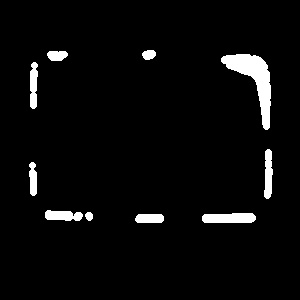You are here: Start » AVL.NET » AVL.OpenRegion(AvlNet.Region, AvlNet.RegionMorphologyKernel, int, int?, AvlNet.Region)
AVL.OpenRegion(AvlNet.Region, AvlNet.RegionMorphologyKernel, int, int?, AvlNet.Region)
Performs a morphological opening on a region using a predefined kernel.
| Namespace: | AvlNet |
|---|---|
| Assembly: | AVL.NET.dll |
Syntax
public static void OpenRegion( AvlNet.Region inRegion, AvlNet.RegionMorphologyKernel inKernel, int inRadiusX, int? inRadiusY, out AvlNet.Region outRegion )
Parameters
- inRegion
- Type: AvlNet.Region
Input region - inKernel
- Type: AvlNet.RegionMorphologyKernel
Kernel shape (predefined) - inRadiusX
- Type: System.Int32
Nearly half of the kernel's width (2*R+1) - inRadiusY
- Type: System.Nullable<System.Int32>
Nearly half of the kernel's height (2*R+1), or same as inRadiusX, or null. - outRegion
- Type: AvlNet.Region
Output region
Description
The operation performs a morphological opening, which is a tool used for removing thin parts from a region. The operation is a convolution of two basic morphological operations:
- Firstly, the input region is eroded using ErodeRegion operation.
- Then, the resulting region is dilated using DilateRegion operation.
During the erosion thin parts of a region are eliminated, while further dilation assures that the width of region limbs is preserved.
Both of the component operations are conducted using the same inKernel, inRadiusX and inRadiusY parameters.
Examples
 |
 |
OpenRegion run with inKernel = Ellipse of dimensions inRadiusX = 3, inRadiusY = 3.
Errors
| Error type | Description |
|---|---|
| DomainError | Unsupported kernel in OpenRegion. |


